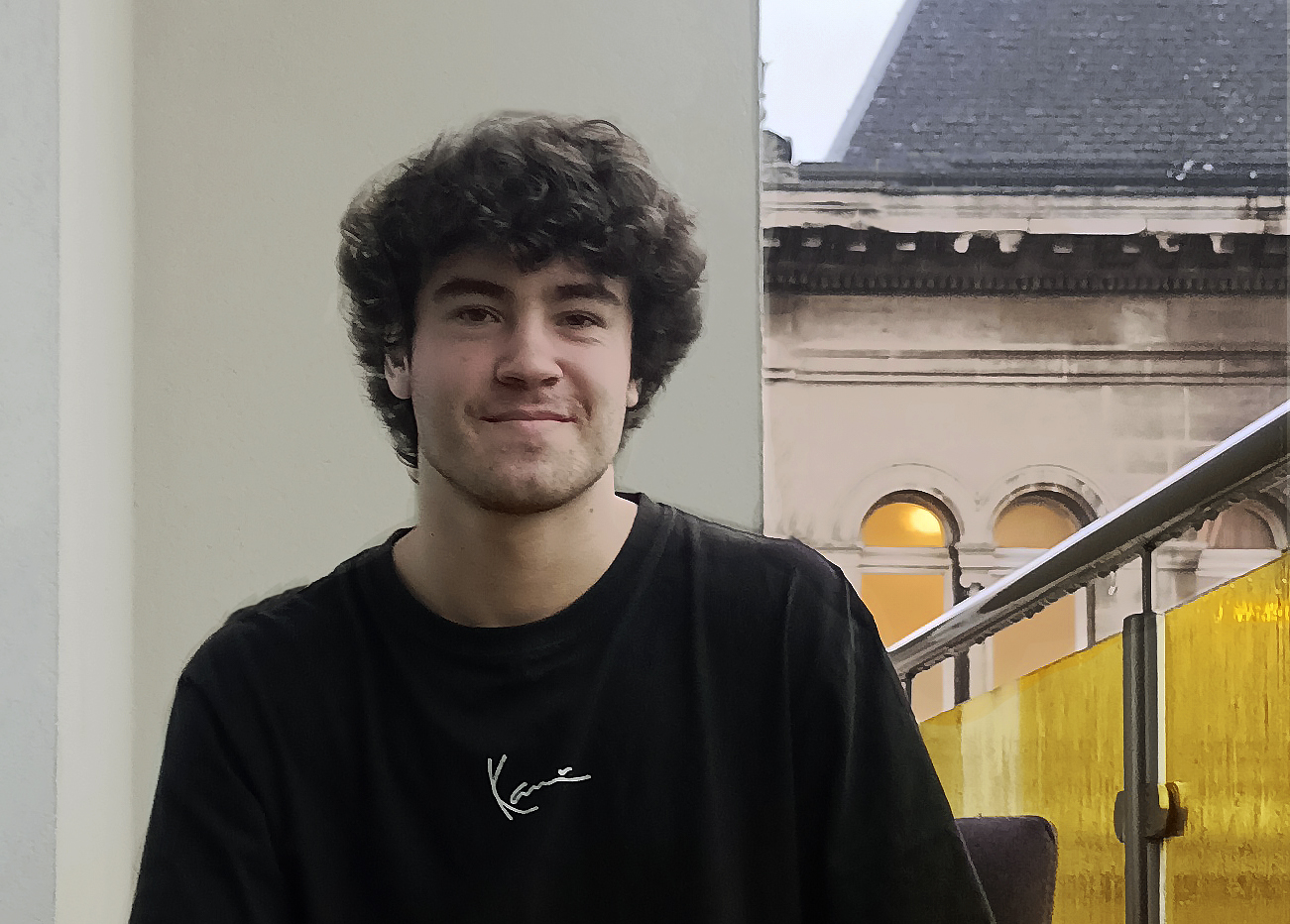
MECHELEN, CITY OF CULTURES – Business student David (Spain) : ‘Being supported helped me adapt during my exchange’
David Sanz (21), is an exchange student from Madrid University Francisco de Vitoria, where he studies Business Analytics and Computer Engineering. But now he is an International Business Management student at Thomas More in Belgium. Coming from a big city like Madrid to the small town of Mechelen was a change for him, but he found support in the international community.
Going on an Erasmus can be a very exciting adventure at first. However, leaving the commodities of your home country can create a shock for many students:’As an only child, I have always wanted to experience what living alone is like, without my parents.’ Nevertheless, having to actively participate in daily tasks he was not used to, surprised him in a special way: ‘I had never put myself doing daily tasks like cooking, cleaning my room, buying groceries, not on a daily basis at least’, David confesses.
Arriving in Mechelen for the first time was a big change for David. He felt delighted by the quiet and calm atmosphere of the city. ‘I’m used to the noisy Madrid, so I was pleased to know how different Mechelen is.’ The weather, on the other hand, had him confused at the beginning: ‘The first days I arrived it was very hot in Belgium which I was not prepared for. I only brought winter clothes, so it was very hard because of the heat. I remember people used to tell me: “Just wait for the winter and you’ll see!”
A cultural shock
There are plenty of differences between Belgian and Spanish culture. ‘As a group of Spanish people we were always loud and doing silly things. Then we noticed that people glanced at us as if we were strange people, but now I have learned that it’s different here since you have to be more relaxed.’ David also experienced some language challenges. He found that English is not a commonly used language in Belgium, not at least everywhere. ‘For the first time, I hadn’t been able to communicate fluently with people on a daily basis.’
The strictness and sense of anticipation of the Belgian universities helped him to adapt more easily in Mechelen: ‘Belgian universities are more organized. We have the whole semester planned. In Spain they are more spontaneous. They give you the homework for the same day or the same week and you have to do it. I don’t like it!’
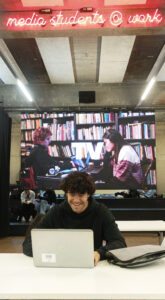
© Sarah Boutaud
Homesickness
David thought that homesickness would affect him more, but he acknowledged that he adapted well because of the international community of students. ‘We are always here for each other if someone needs something. I am also surrounded by Spanish people so maybe the adaptation is easier.’
So well surrounded that the young student found himself having to share his kitchen with fifty other flatmates:
‘The kitchen in our residence is very small! It’s not easy when everyone wants to prepare their meal at the same time, especially in the evening. But we found our own way of organizing things, and now we all eat together most of the time. Like one big family!’
For these housemates, sharing moments like these has enabled them to get to know each other, around a simple but convivial activity.
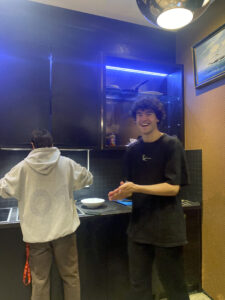
© Lina Benhaj
Coming to Belgium, he was worried that he would not be able to enjoy his favourite sport: ‘I play padel on a professional level in Spain and I was very worried when coming here because I didn’t know if Padel was a popular sport here.’ Fortunately, he ended up meeting a group of people who introduced him to a new team. Nowadays he is playing three times a week for the Evere White Stars in the first Belgian division: ‘Playing here is different since the weather is also different. The way of playing is something else.’
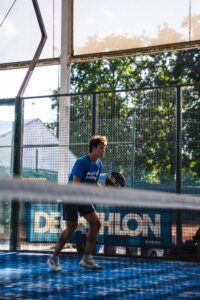
© David Sanz
Relating to his experience, David advises every student to be open to meeting people from all kinds of cultures and not just your own: ‘We don’t care about the culture, the nationalities or any characteristics. I can say that my expectations about this Erasmus have been met, even better than I expected!’
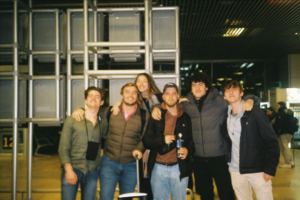
© David Sanz
Text: Lina Benhaj, Sarah Boutaud & Gonzalo Sanz
Photo: © Sarah Boutaud & © Lina Benhaj
Archives: © David Sanz




